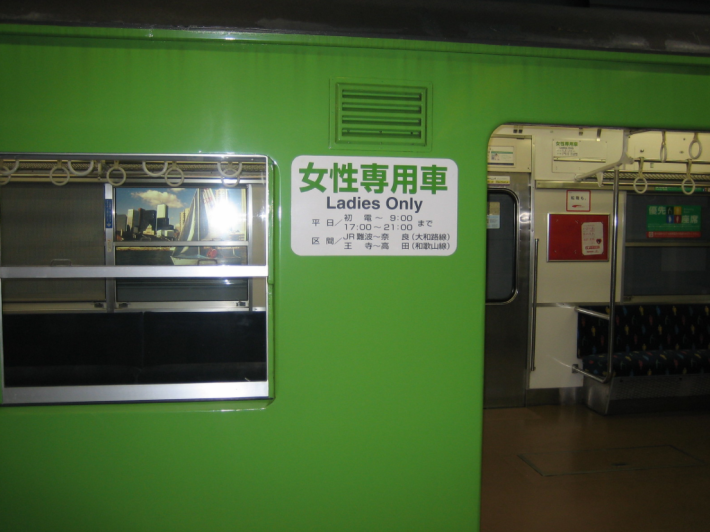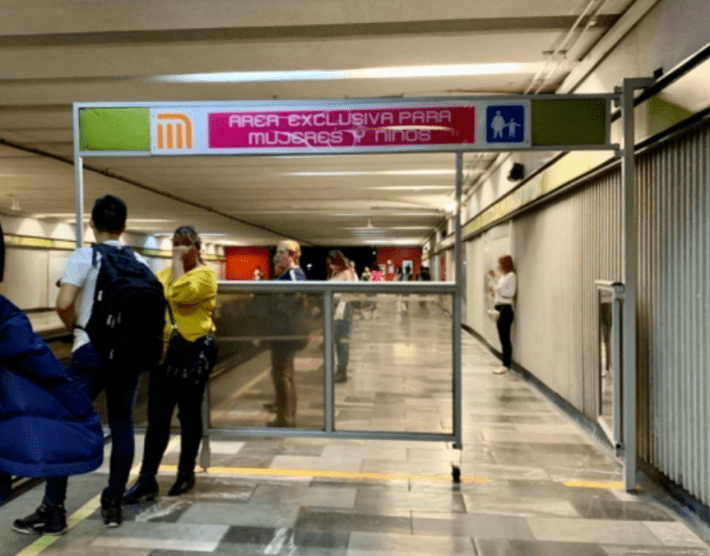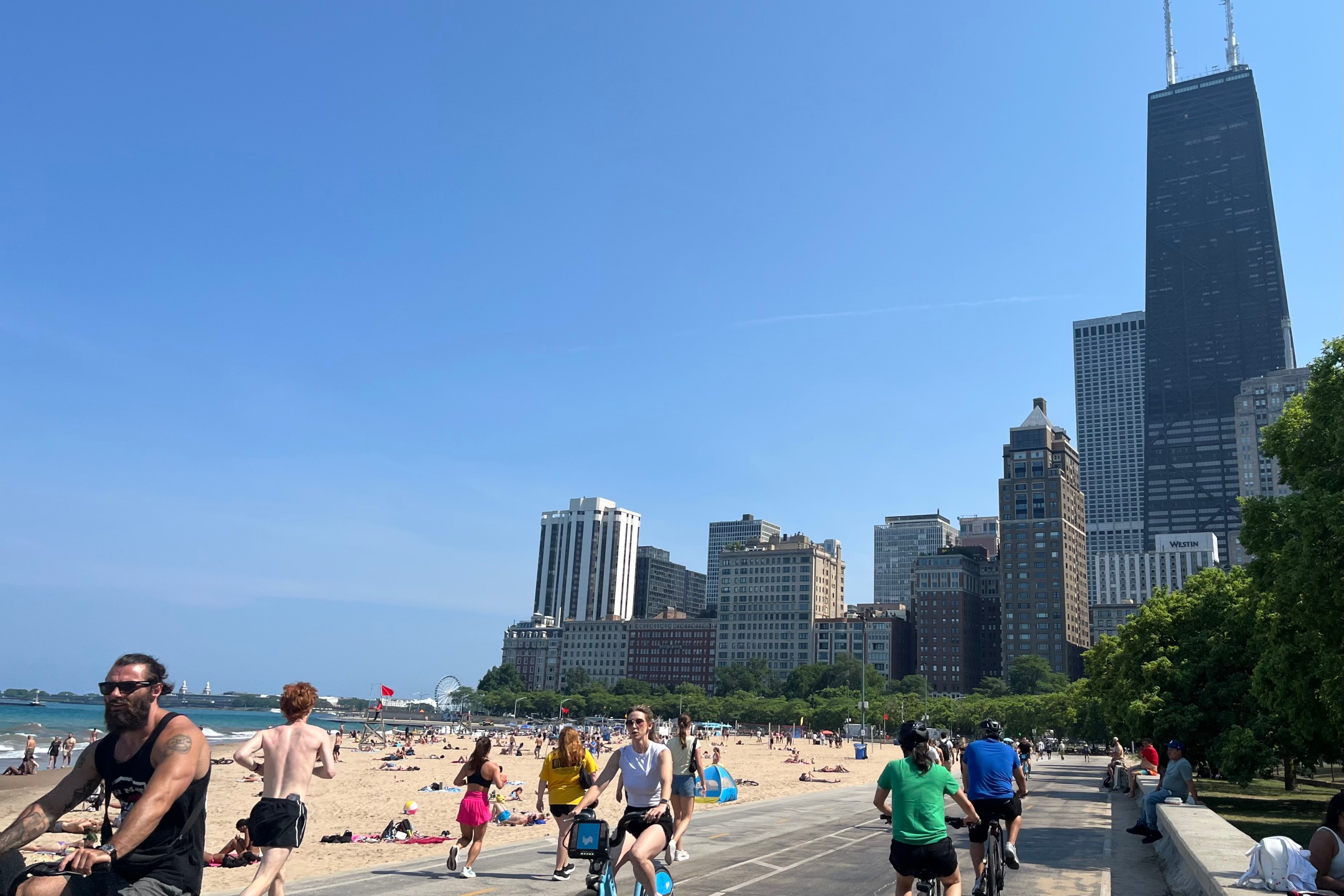Patti Flynn is a freelance writer who uses her lens as a queer trans woman to inform her work. She spends her days as a Senior DEI Strategy Consultant with Equality Institute, and enjoys biking and running.
Picture a world where women, transgender, and nonbinary (WTN) people could ride transit feeling safe, secure, and strong. They could go from point A to B without being harassed. Impossible to imagine? You are not alone in that thought. That has led some to consider whether rail cars reserved for WTN individuals would be a helpful strategy.
Harassment on public transportation can be an issue for many of us here in Chicago. WTN people are verbally confronted, touched, assaulted, and fear for their safety daily both on transit vehicles, and at stations and bus stops. This drives some WTN folks to avoid transit and spend more money to use non-sustainable modes, like private cars or ride-hail. This doesn’t address, nor solve the problem of harassment. It merely trades some dollars for a slight reduction in opportunities for harassment.
Can sexual harassment be rectified? Yes, but it is extremely unlikely to happen anytime soon. The patriarchal foundations of this country put non-male persons – and others who do not fit our societal norms – in harm’s way. While correcting that would eliminate the need for WTN cars, it is a difficult problem to solve. So, assuming we can't smash the patriarchy overnight – hey, a girl can dream – would WTN-only train cars be useful for preventing harassment on the 'L'?
Last January Streetsblog Chicago looked at whether women-only rail cars, which have existed for years in Asian and Latin-American countries like India, Indonesia, Japan, Mexico, and Brazil, might work in Chicago. In some cases, transit systems offer a separate waiting area on the platform for women. Local cisgender women Streetsblog interviewed were fairly positive about the idea.
However, some readers of that article argued that providing women-only rail cars is a paternalistic strategy that doesn't hold men accountable for harassment.
Streetsblog also heard from people on social media who noted this initial discussion didn't consider how such a policy might impact the transgender and nonbinary communities. They asserted that such a policy would do more harm than good, because it could result in the exclusion of, or even violence against, trans women or nonbinary people whom others think "don’t look feminine enough to be on the car.”

Streetsblog apologized for the oversight in a follow-up post and specified that any special cars should be labeled to explicitly include trans and nonbinary people, in addition to cisgender women. After further discussion with trans and nonbinary folks on social media, the site hired me to do a deeper dive into the issue, getting more perspectives from diverse members of the trans and nonbinary communities on whether such cars would be helpful or harmful.
I asked local members of these communities for their opinions, along with some people from outside the city. Although the responses were not all the same, I was able to see a pattern emerging from them.
Jenn, a white trans woman, and a regular 'L' rider who moved away from Chicago before the pandemic, had questions. “Personally, I think [WTN cars] may put us at greater risk. Who is going to be enforcing this? Who is going to get to decide if someone is 'trans enough' to be permitted to ride?”
Echoing that theme, Penny, also a white trans woman, noted, “Even though trans and nonbinary people may be included in the name of the car, not all people will understand what that means.”

CJ Grove, a white trans woman from the suburbs who used the train daily before the pandemic, said, “I like the idea. My concern is that there is a non-negligible amount of women who don’t like the trans community, particularly trans women. I worry that there would be a vocal minority who would oppose the inclusion of trans women.”
So who would get to decide who goes into this car? What level of cisgender passing is required? Almost everyone I asked had similar concerns. Not all cis women are tolerant of trans women.
As Elise, a Black woman "of trans experience," told me “Womanhood isn't something that should be policed, and all marginalized people who are transfeminine, trans women, feminine bodied or feminine-of-center should feel safe on the train and welcome.”
What about masculine-of-center nonbinary people or trans men? Adam, a nonbinary person who identifies as "a male presenting Assigned Male at Birth" told me, "[WTN cars] would make me hesitant, maybe because I don’t feel that I am [nonbinary] optically. But also as presenting male, I would feel that I would be either seen as an invader of the space or fear that I am making others uncomfortable with my presence.”
“In theory, [a WTN car program] sounds good," said Nikk, a white trans man. "But I could see someone like myself being gender-policed because I look like a man. So, I’d have to out myself to justify my presence.” This again raises the question of where the line would be drawn about who would be allowed in the cars.
“It would put a target on anyone who uses it," argued Denise, a white trans woman. "It separates and excludes people who are not in the group.”
“I understand some people maybe inclined [towards] this, but my initial reaction is that it’s simply not a good idea," said Delilah, a Mexican-American trans woman who works doing outreach to unhoused people sheltering on the CTA. "The line between a safe space and segregation gets blurred here. I want gender-diverse people to be able to feel safe wherever they go but this doesn’t seem like any solution I would want.”
My final thought on this subject as a trans woman myself – one who benefits from privileges like my whiteness, and cis passing – is that while WTN cars might be a nice amenity for some, they would not fix the root cause of the harassment problem. Additionally, the countries and cities that are often cited as best practices for women-only cars have one thing in common: heavily entrenched patriarchy. These are places that have a long way to go when it comes gender equality and equity.
Again, it is vastly more difficult to train cis men not to harass people than it is to put up some signs announcing that cis men are excluded from a train car. But is our society close enough to being Gilead – the patriarchal dystopia from Margaret Atwood's novel "The Handmaid’s Tale" – that this is the direction we need to take? I certainly hope not.




